Table of Contents
Introduction: A Parent’s Daily Struggle
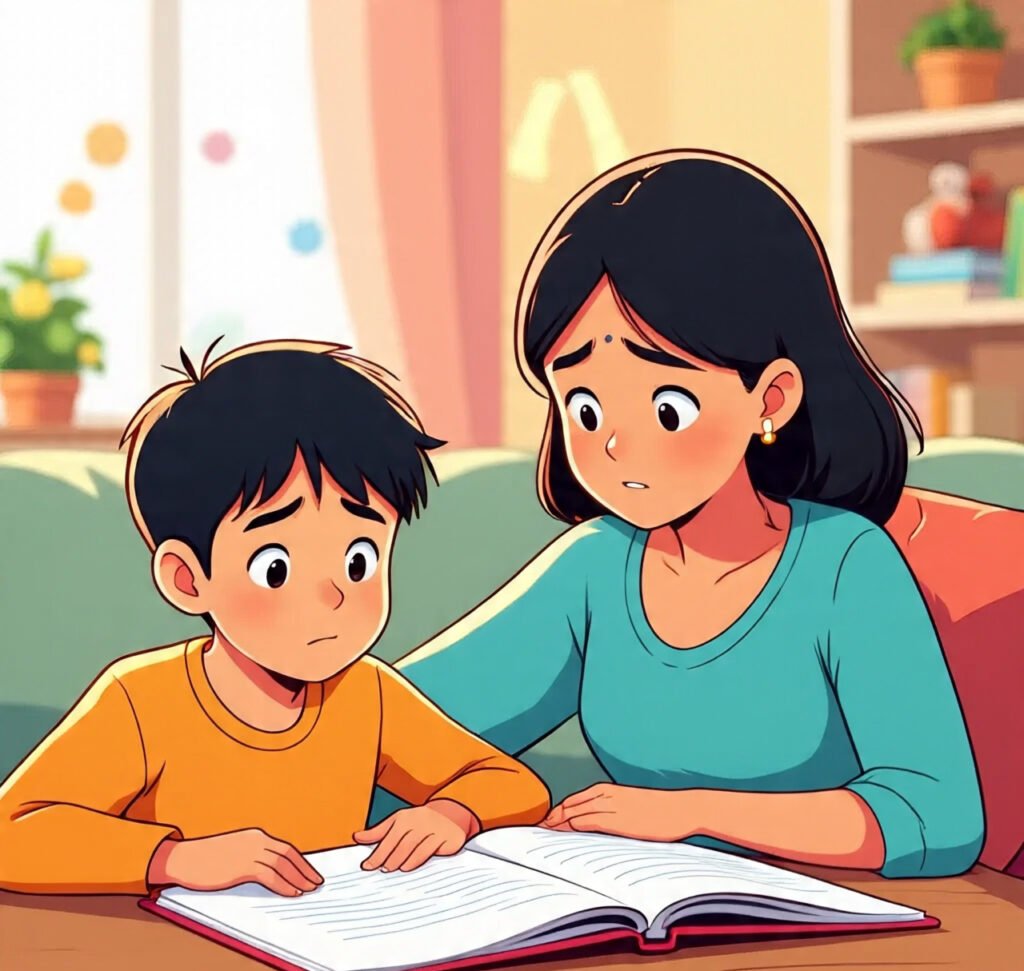
When seven-year-old Aarav came home from school one evening, he carried a notebook filled with scribbles, letters, and half-finished sentences. His mother noticed him frowning. “What’s wrong?” she asked gently. Aarav sighed and said, “Grammar is too hard. I don’t know when to use nouns or verbs, and I forget everything the next day.”
This is a scene many parents recognize. Kids may feel frustrated with grammar rules, and parents often wonder how to make kids grammar simple, fun, and memorable. The good news? Grammar doesn’t have to be dull or confusing. With the right approach, children can learn grammar basics, sharpen memory, and build confidence in both speaking and writing.
Why Grammar Matters for Kids
Grammar is like the foundation of a house. Without it, communication becomes shaky. Children who learn kids grammar at an early age develop strong reading and writing skills. It helps them:
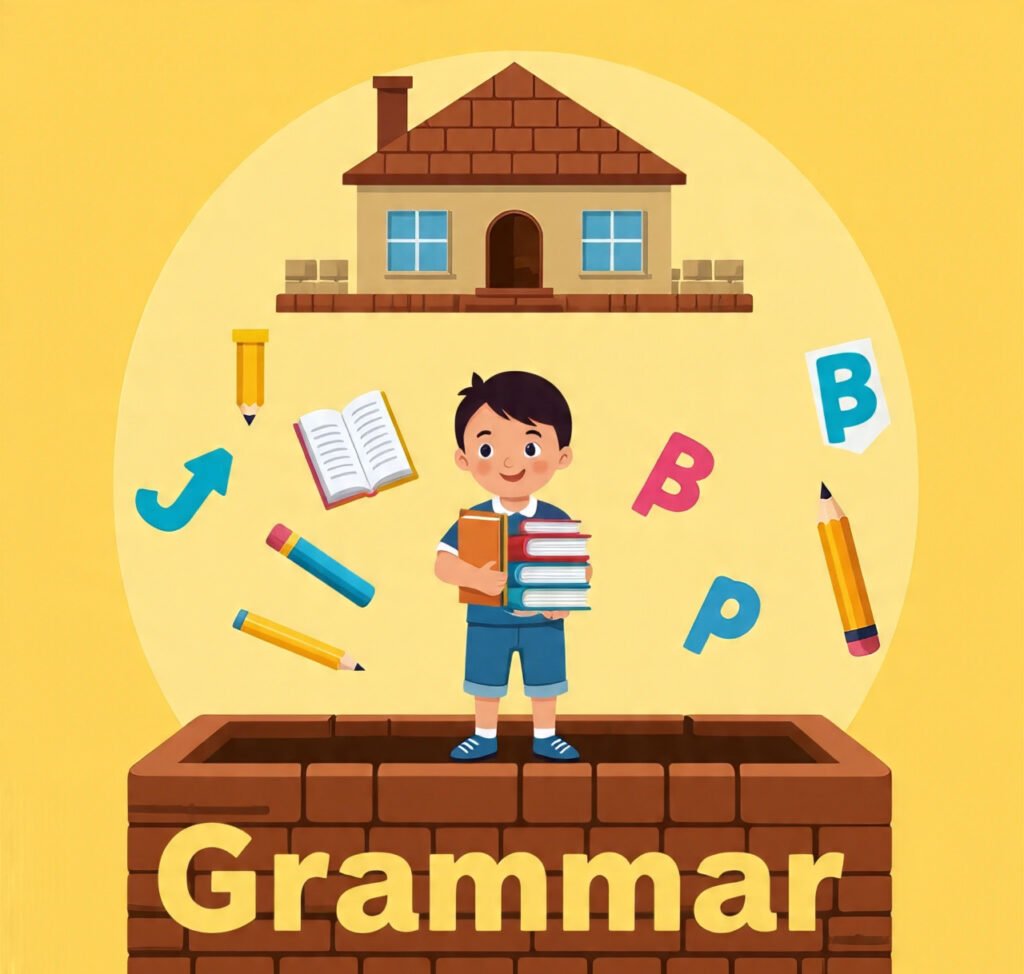
- Express thoughts clearly in sentences.
- Understand stories, poems, and lessons better.
- Avoid common mistakes in schoolwork.
- Gain confidence while speaking in class.
But for many children, grammar feels like a set of boring rules. The challenge for parents is: How do we turn these rules into something exciting?
Turning Grammar into a Story
Imagine teaching grammar as a magical adventure. For example, you can tell your child:
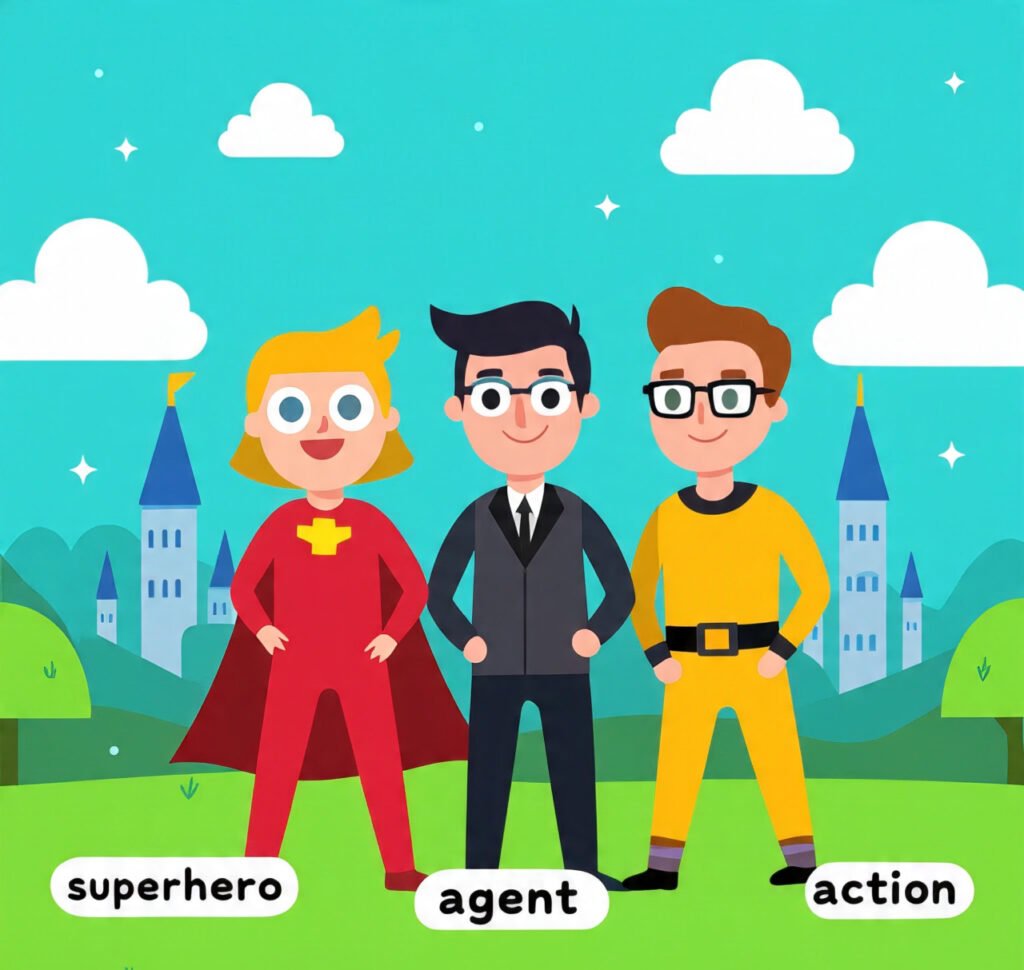
- Nouns are the heroes of the story – people, places, and things like “Riya,” “park,” or “book.”
- Pronouns are their secret agents, stepping in to replace nouns – “he,” “she,” or “they.”
- Verbs are the action stars – they “run,” “eat,” or “play.”
- Tenses are time machines, showing what happens in the past, present, or future.
When kids see grammar as characters and actions in a story, they begin to enjoy the process. This way, kids grammar turns into something memorable rather than forgettable.
Memory and Grammar Go Hand-in-Hand
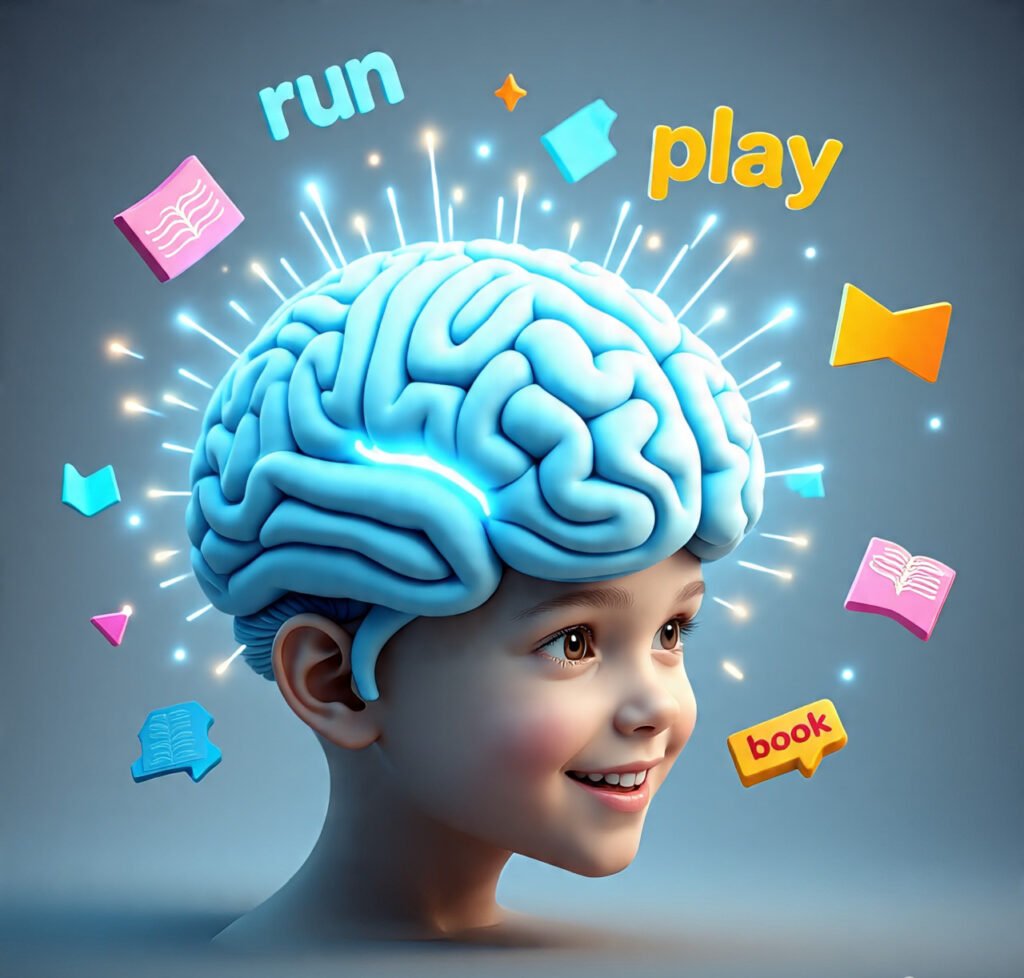
Grammar isn’t just about rules; it’s also about memory. A child needs to recall vocabulary, sentence patterns, and grammar rules quickly while writing or speaking. That’s why memory training becomes essential.
Activities like memorize games sharpen concentration and boost vocabulary recall. When children play games that connect words, match sentences, or repeat grammar patterns, their brains store information for longer. Slowly, kids grammar becomes second nature.
Fun Activities to Master Kids Grammar
Here are some engaging, parent-approved ideas to make grammar practice enjoyable:
1. Grammar Treasure Hunt
Hide cards around the house labeled with nouns, pronouns, or verbs. Ask your child to find them and create sentences. Example: “The dog (noun) runs (verb) fast.”
2. Story Building Game
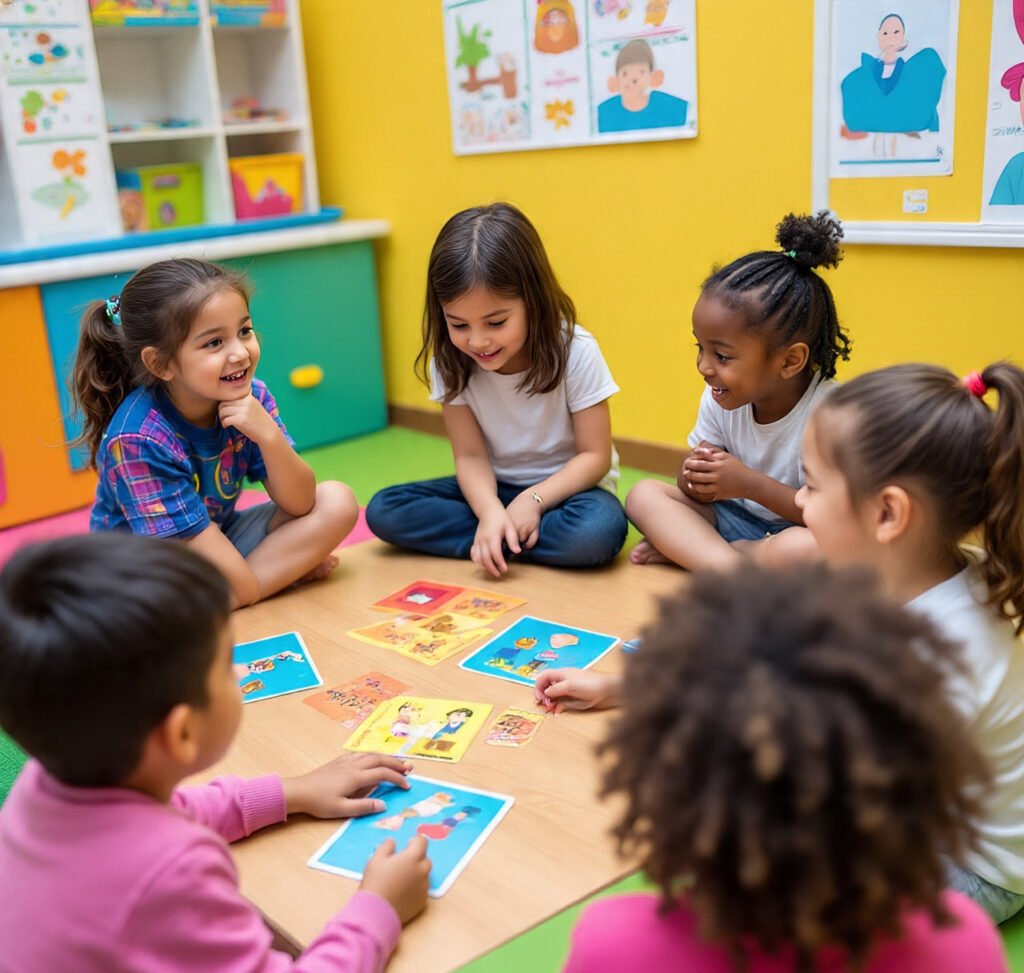
Start a story with one sentence, like “I went to the park.” Let your child add another sentence using a new noun or verb. Soon you’ll have a creative, funny, grammar-rich story together.
3. Memory Match Cards
Create flashcards with kids grammar words and definitions. Kids flip the cards to find matches improving both grammar knowledge and memory skills at the same time.
4. Daily Life Examples
Turn everyday moments into grammar lessons. At the dinner table, ask your child to find a noun (“plate”), a verb (“eat”), or a pronoun (“she”). It’s simple, natural, and practical.
Why Kids Struggle with Grammar
Parents often notice their kids making repeated mistakes:
- Forgetting when to use “a” or “an.”
- Mixing up “is” and “are.”
- Struggling to form simple sentences.
This happens because children don’t just need rules they need practice and memory reinforcement. When kids use grammar repeatedly in playful ways, they remember it better. That’s why integrating memory exercises with grammar is a powerful combination.
The Role of Parents in Grammar Learning
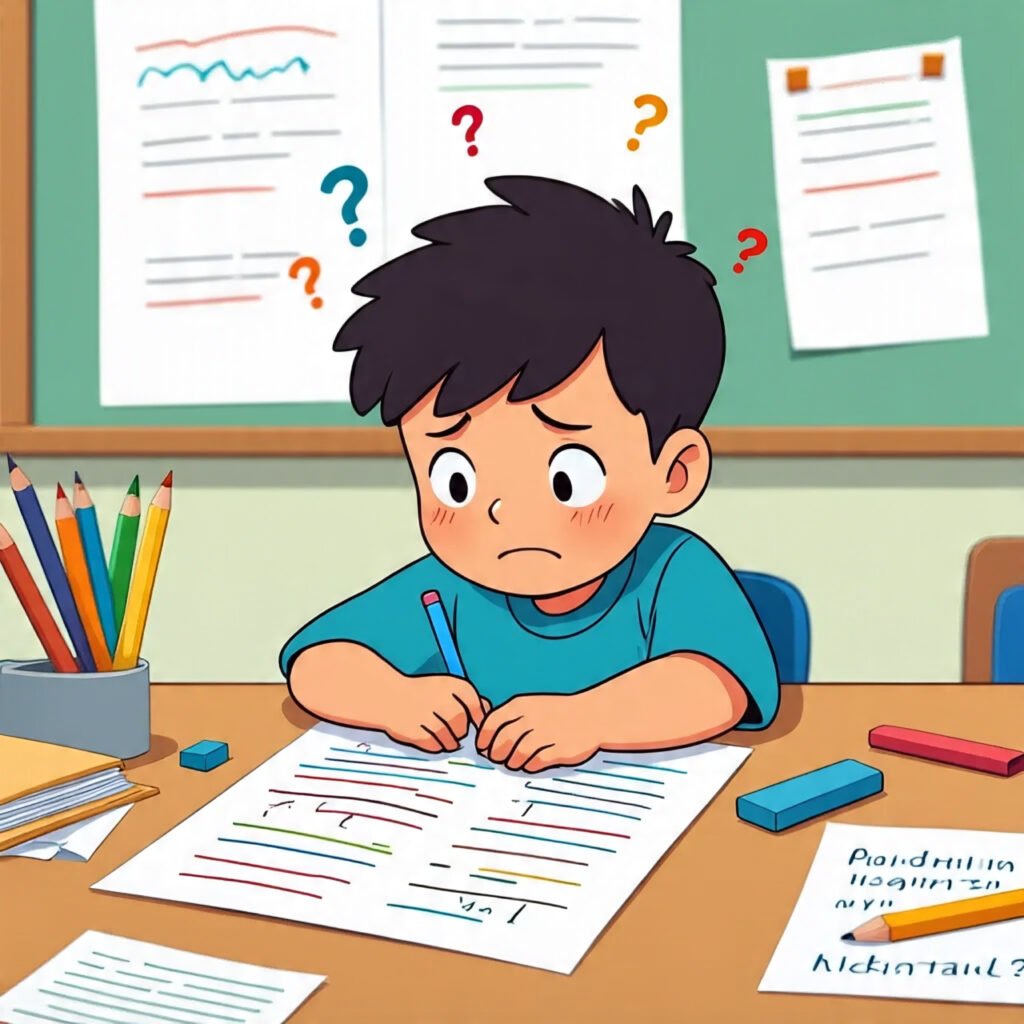
Parents play a vital role in guiding children through the maze of kids grammar. By being patient, supportive, and creative, you can transform study time into bonding time. Sit with your child, encourage them to ask questions, and celebrate small grammar victories.
Remember, the goal is not perfection but progress. When kids see grammar as fun rather than stressful, they begin to approach learning with curiosity. And this curiosity is the true foundation of mastering kids grammar.
Storytelling: A Powerful Memory Tool
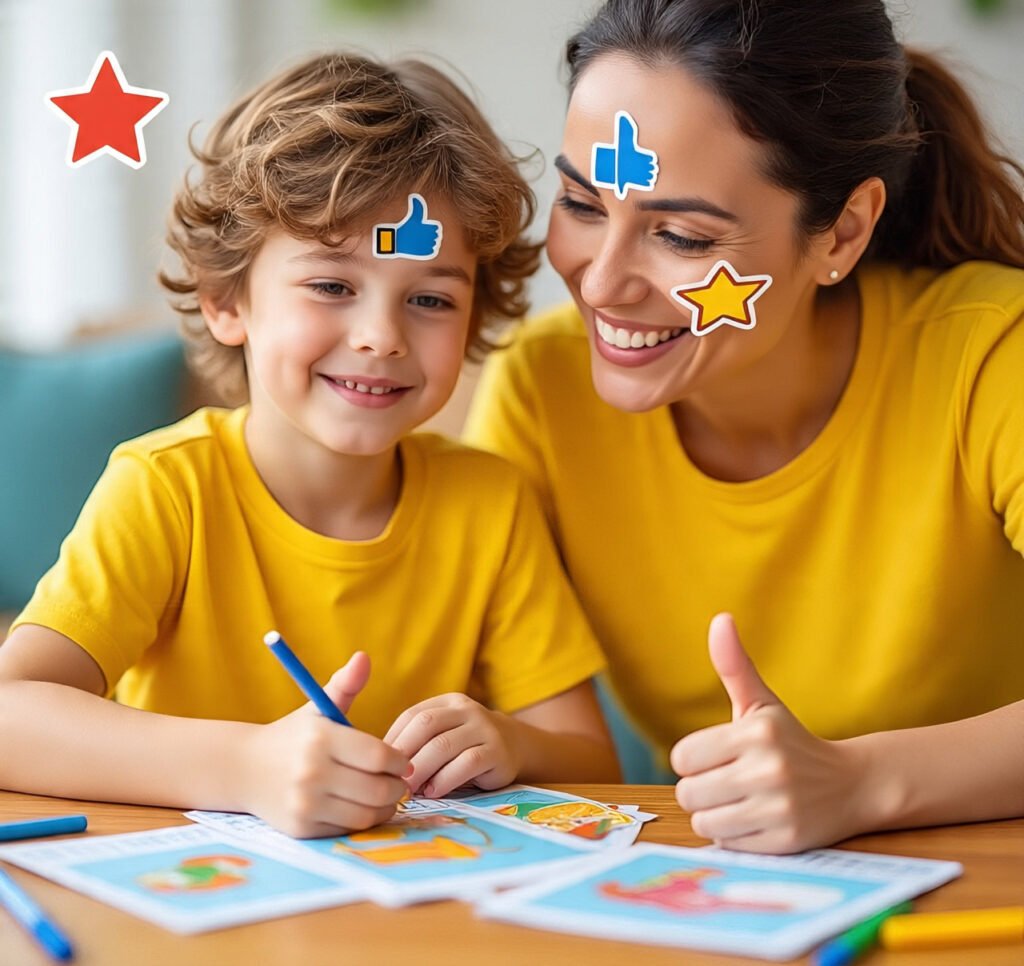
Stories stick in the mind better than rules. Instead of saying “verbs show action,” tell your child a story: “Rohan runs to the park, eats an ice cream, and plays with his dog.”
By weaving kids grammar into stories, kids not only understand the rules but also remember them effortlessly. It’s one of the most effective ways to connect memory skills with grammar basics.
Building Confidence Through Grammar
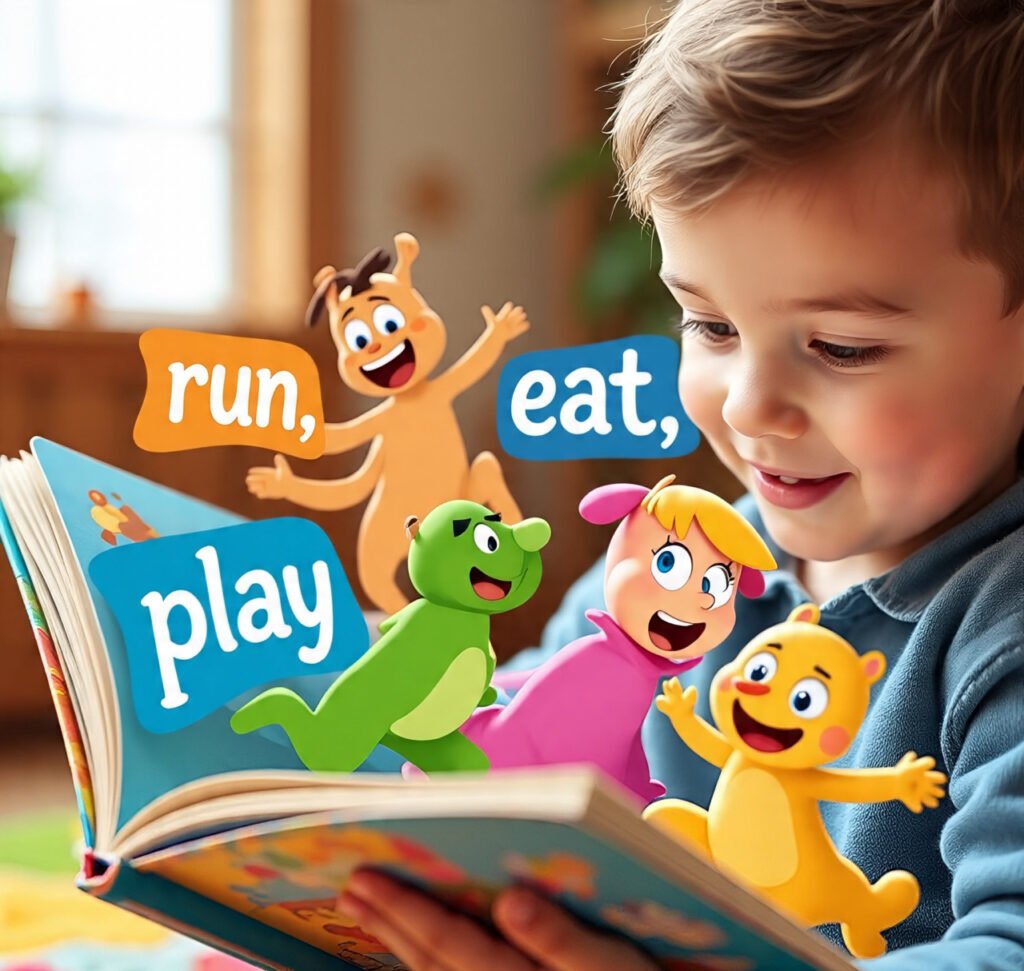
When kids master grammar step by step, their confidence grows. They can proudly write sentences like “I eat a mango” or “She is happy.” Small successes motivate them to keep learning.
Confidence doesn’t just stay in the classroom it spills into every part of a child’s life. Whether reading aloud in school or talking with friends, strong grammar gives them the courage to express themselves. And that’s why focusing on kids grammar early is so important.
Final Thoughts
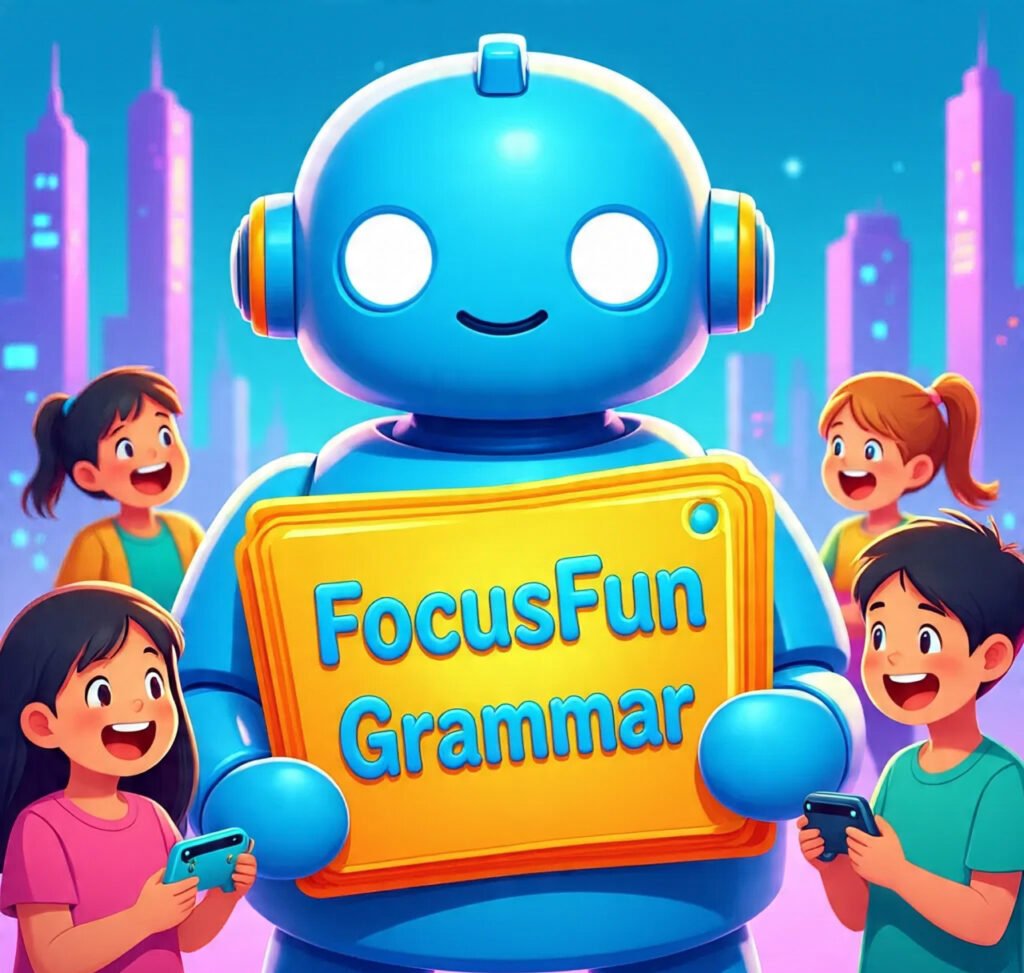
Grammar doesn’t have to be boring. From nouns and pronouns to verbs and tenses, children can learn grammar in ways that feel like play. By combining fun grammar activities with memory-building games, kids not only understand the rules but also remember them for life.
For parents, the journey is about making learning enjoyable and stress-free. When kids laugh, play, and tell stories while learning grammar, they become more confident, creative, and curious learners.
If you’re looking for a tool that makes grammar and memory training exciting, engaging, and interactive, FocusFun is the perfect companion to support your child’s learning adventure.
1. How can I make Kids Grammar fun and easy for my child?
Simplest for whom, the teacher or the student? And who is this teacher? An elementary school teacher? A college composition instructor? We don’t know, based on your question, who is teaching or learning here.
In 20 years of classroom teaching, I have taught courses in four different languages. I know damn well there isn’t a “simplest” method of teaching anything, or a “best” method either. Please don’t be a reductivist simply because you feel unprepared, uncertain, hurried or (maybe) lazy. The best teaching usually involves several approaches, combining strategies the research and the teacher have found effective with that language and with most learners of that type.
2. Why is grammar important for kids’ overall learning?
Learning proper grammar is important because it is the language that makes it possible for us to effectively talk about language. kids Grammar names the words and word groups that make up sentences not only in English but in almost any language.
3. What is the right age to start teaching kids grammar?
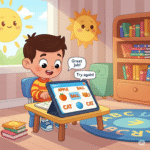
Around the time they hit puberty might be a good time to introduce them to more formal features of their language though as they will soon need to interact formally. Trying to teach that through introducing grammar concepts as technical features is still not a great way to do it, but it works, sort of.
4. How can parents track children’s progress in grammar learning?
Parents can monitor their children’s education progress by simply opening a book of their choice and observing their fluency and comprehension as they read aloud. Fluency is the speed and ease of reading. Look at the ease of reading. Is their reading choppy and labored?
5. How do I know if my child is struggling with grammar basics?
Encouraging a child to read voraciously helps to improve kids grammar and writing skills. I read to both of my daughters from a very early age and taught both of them to respect books and enjoy reading. Both are voracious readers – my one daughter would regularly check out five books from the local library and then need to go and get more books the next day! Both of my daughters have excellent grammar and writing skills in adulthood and still read for pleasure on a daily basis (as do I). If I’m eating alone, I cannot just sit and think while I’m eating, I need to be reading at the same time.
6. How long do kids spend on technology a day?
Though it depends on age but I guess, they don’t spend time on technology only when they are taking bath, else while having food, inside loo, while driving/riding, in class, watching or doing anything else they are always connected in one or the other way.
7. Why do children prefer YouTube and cartoons over learning?
The biggest factor behind this is animation.. children like animated stuff..animation do attract children.. animation itself is a huge concept which includes sound , picture quality, characters…from these things children find it attractive and engaging..
8. Can grammar be taught without boring worksheets?
Yes! Kids Grammar doesn’t have to be limited to worksheets. Children learn faster when grammar is part of games, storytelling, and play activities. For example, instead of filling blanks on paper, kids can spot nouns around them, act out verbs, or use pronouns in role-play. This turns learning into an interactive experience rather than a chore. With FocusFun, grammar lessons become engaging games that children enjoy, helping them learn naturally while reducing mobile addiction from non-educational apps.
9. How do memory games help kids improve grammar learning?

Memory games are powerful because they sharpen recall and concentration. When kids play memory-based activities, they repeat grammar rules, vocabulary, and sentence patterns without feeling pressured. For example, matching nouns with pictures or recalling verb actions builds long-term memory. FocusFun combines grammar basics with memory-boosting games, ensuring children not only learn the rules but also remember them when speaking, writing, or storytelling.
10. Do grammar games help children perform better in school exams?
Absolutely, kids Grammar games make concepts stick in a child’s mind through practice and play. Instead of rote memorization, kids absorb grammar rules in a fun way, which makes it easier to apply them in writing, reading, and exams. By improving memory, vocabulary, and sentence-building skills, FocusFun grammar games help children perform better in school tests while keeping them away from excessive screen time and mobile addiction.
